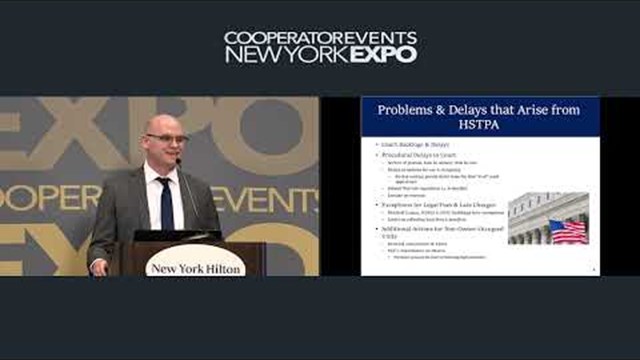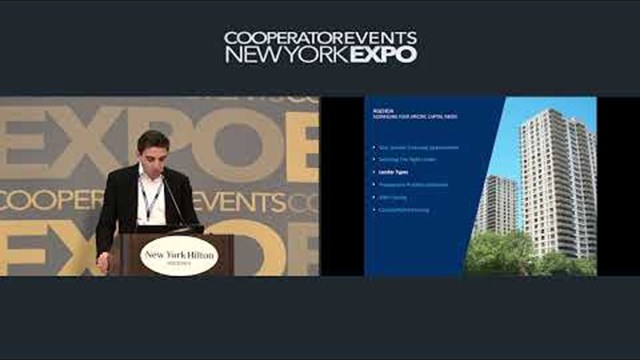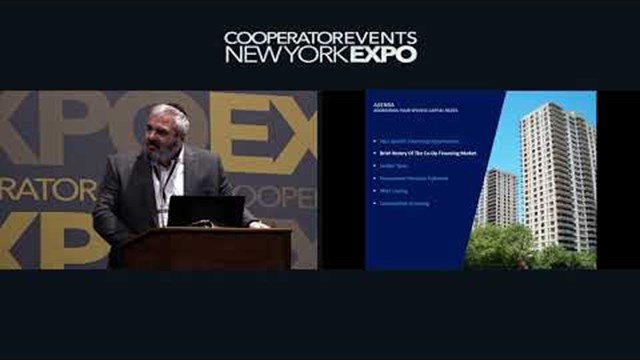The primary function of a board of a co-op or condo is to operate, maintain, repair and preserve the common property. The board also has a responsibility to maintain the value of the property.
Most boards develop an annual operating budget in which they project operating expenses for the upcoming year to determine the level of maintenance or common charges required from unit owners. In addition to an operating budget, the board should also establish a capital budget to plan for current and future repairs, replacement, and improvement of major components of the property, such as roofs, balconies, the exterior façade, elevators, boilers, and so forth. The capital budget should project expenditures for major repairs and replacement of property components for a longer period, such as five years.
In developing a capital budget, boards must decide how to fund the projected cost of repairs and replacements of the property's major components. Boards have several options: accumulating funds over a period of time, special assessments when the funds are needed, borrowing, or a combination of the above. Funds set aside for this purpose are usually referred to as "reserve funds." A properly funded reserve assures that money will be available for any major anticipated repairs and replacements.
There is no simple formula for determining the proper level of reserves. Many co-ops and condos maintain a reserve fund by falsely using informal rules of thumb (i.e., three or six months of maintenance), which may not be sufficient.
In order to determine the proper level of reserves, a detailed study should be performed. A reserve study can be done by the board, the property manager, or building maintenance staff, but is generally best carried out by a professional engineer or architect. The reserve study requires a physical analysis of the components of the common property, as well as a financial analysis. The physical analysis includes identification of the major components of the property, an inspection and assessment of the age and condition of the components, and an estimate of their remaining useful life.
The financial analysis requires an estimate of the cost of the major repair or replacement of the components and the establishment of a funding plan. Like operating budgets, capital budgets must be updated annually, taking into consideration repairs made since the last capital budget, any changes in the condition of major components since then, as well as cost, reserve balances, and so forth.
Because co-ops or condos with adequate reserves have the funds available to make needed major repairs and improvements, they are usually better maintained, which enhances the value of the property. Inadequate reserves may restrict a board's ability to properly maintain the property, and thus adversely affect the value of the property and the ability of owners to sell their unit.
In addition to the board's responsibility to maintain and preserve the property, as well as the value of the property, it also has the responsibility to protect, maintain and enhance the assets of the co-op or condo. Boards should develop an investment strategy for reserve funds. The board should consider only investments that are safe, liquid and maximize yield. They should not speculate with co-op or condo funds in an effort to beat the market. Most boards follow the above philosophy by investing their reserve funds in U.S. obligations, bank Certificates of Deposits (CDs), municipal obligations and money market accounts.
Once the board of a co-op or condo is convinced of the need and desirability of maintaining a properly funded reserve, they face the challenge of educating their unit owners of the need to set aside funds for future major repairs and replacement. It is not unusual for unit owners to resist funding for future repairs and replacement. They are reluctant to contribute to a reserve fund they believe will benefit future owners. Owners must be convinced that accumulation of reserves assures that funds will be available when needed to maintain or improve their property, and to minimize the need for large special assessments. A healthy reserve fund is an equitable means of spreading the cost of building maintenance and repair to all users, and is an indication of the well being of the building, which enhances the value of the property and unit owners' investment.










20 Comments
Leave a Comment